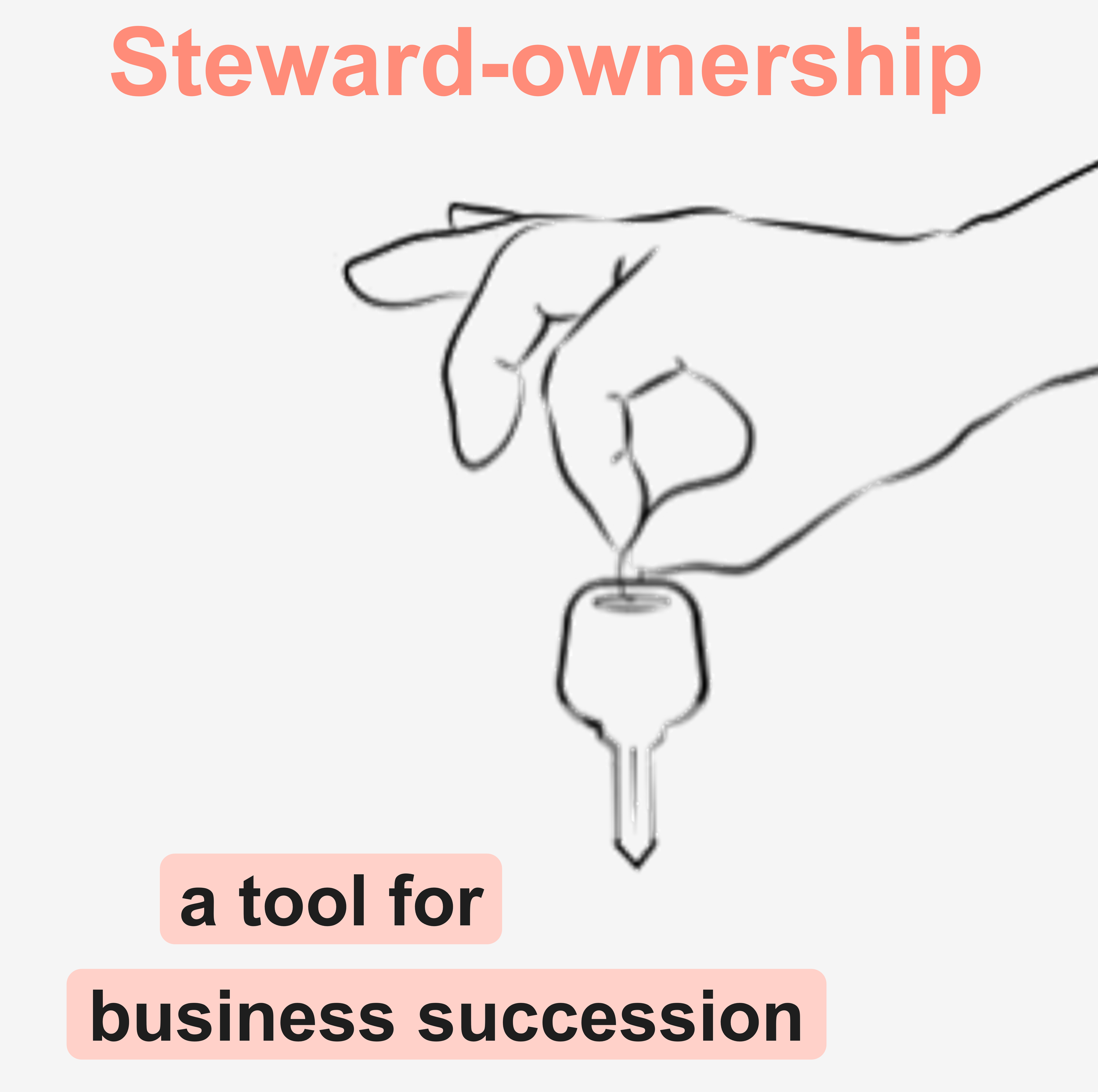Steward-ownership: a third pathway for family business succession
More and more entrepreneurs passing on their companies are looking for solutions that ensure their life’s work can remain independent, mission-driven, and resilient in the long term.
Across the world, more entrepreneurs are exploring a third way — Steward-ownership — which offers a realistic alternative to the two traditional paths:
Transfer within the family – often ideal, but not always possible or desirable.
Sale to an external party – sometimes lucrative, but often at the cost of a company’s identity, values, and independence.
Steward-ownership provides an alternative third way to transfer ownership to people deeply connected to the enterprise, without losing the essence of what the company stands for. It’s a fast-growing ownership model that is gaining traction worldwide.
Curious how this works?
During the ‘Week van de bedrijfsoverdracht’ / ‘Semaine de la Transmission d'entreprise’, we’re offering on 21/11 short online 1-on-1 introductory sessions to explore together whether this model of succession might be right for you.
Family Business 2.0
Alongside major companies such as Patagonia, Bosch, Carlsberg, De Efteling, Signal, Novo Nordisk, and Lego, we see a strong rise in succession via Steward-ownership in the Netherlands and especially in Germany.
There, it’s often referred to as ‘Family Business 2.0’, because – just like in a traditional family SME – the focus is on long-term stewardship, values, and independence.
It sounds like an ideal way to pass on your legacy.
Two Core Principles
The term Steward-ownership is now widely used across the world and is based on two key principles:
[1] Self-determination
A steward-owned company cannot become an object of speculation; it remains independent in the long term. Control always stays in the hands of people connected to the company and its mission.
Moreover, control over the company cannot be inherited, bought, or sold in any form.
The steering rights of the company – its existential voting rights – are held and passed on in trust to competent and committed people: the steward-owners.
[2] Mission-orientation
Profit as a means, not an end in itself. In a steward-owned company, profits serve the mission and the company’s long-term development. They are not a goal in themselves.
The value created within the company cannot be endlessly privatized for personal gain.
The stewards who control the company therefore have no private access to its assets or equity value.
Of course, fair and risk-adequate compensation for contributions of capital or effort remains possible.
Steward-owned companies are therefore no longer commodities. They eliminate Shareholder Primacy, chart an independent course, and operate with a focus on mission and long-term impact.
From Bloodline to Commitment
Where companies once automatically passed from parent to child, family succession today is no longer self-evident.
The younger generation increasingly follows its own path, while acquisitions by private equity or large competitors can endanger a company’s continuity and culture.
As a result, family businesses are slowly disappearing from our economic landscape.
If your company faces such a situation, it’s worth exploring what Steward-ownership can offer.
It can also provide practical answers to common succession challenges.
For example, a Steward-ownership transfer can still allow the current owners to realize a financial exit — reflected in fair compensation derived from reserves, future cash flows, or new financing by the company itself, without compromising the company’s operational freedom.
The Future of Family Businesses?
As the “silver wave” of entrepreneurs moves toward retirement, the need for sustainable succession models is greater than ever.
Leaving a Legacy
Unlike traditional corporate structures — where power and financial interest go hand in hand — Steward-ownership breaks the cycle of short-termism.
It empowers leaders to act from a sense of responsibility and commitment, rather than shareholder pressure.
This model opens the door to a new generation of successors: employees, partners, or network members who truly understand and wish to carry forward the company’s mission and culture.
Triggered by Steward-ownership?
During the ‘Week van de bedrijfsoverdracht’ / ‘Semaine de la Transmission d'entreprise’, we’re offering on 21/11 short online 1-on-1 introductory sessions to explore together whether this model of succession might be right for you.



